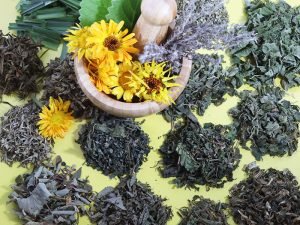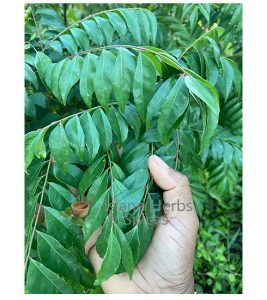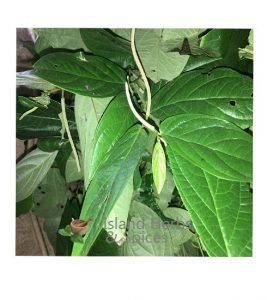Comprehensive Guide to Jamaican Ginger: Health Benefits, Uses, and Recipes
 Jamaican ginger, often known for its potent flavor and aromatic heat, is a unique variety of ginger grown in the Caribbean, particularly in Jamaica. Known for its purity and strength, Jamaican ginger stands out due to the rich soil, climate, and traditional farming practices. If you're looking for a natural, powerful spice that not only adds zest to your dishes but also offers impressive health benefits, Jamaican ginger is an excellent choice.
In this article, we'll explore the numerous health benefits of Jamaican ginger, how to use it in your kitchen, and some creative recipes that highlight its versatility. Plus, we'll share how this high-quality ginger is cultivated on organic farms, making it a sustainable and healthy choice. If you're looking to buy it, you'll find it available at Island Herbs and Spices, known for offering premium, full-strength Jamaican ginger.
Jamaican ginger, often known for its potent flavor and aromatic heat, is a unique variety of ginger grown in the Caribbean, particularly in Jamaica. Known for its purity and strength, Jamaican ginger stands out due to the rich soil, climate, and traditional farming practices. If you're looking for a natural, powerful spice that not only adds zest to your dishes but also offers impressive health benefits, Jamaican ginger is an excellent choice.
In this article, we'll explore the numerous health benefits of Jamaican ginger, how to use it in your kitchen, and some creative recipes that highlight its versatility. Plus, we'll share how this high-quality ginger is cultivated on organic farms, making it a sustainable and healthy choice. If you're looking to buy it, you'll find it available at Island Herbs and Spices, known for offering premium, full-strength Jamaican ginger.
Health Benefits of Jamaican Ginger
Jamaican ginger is celebrated for its wide range of health benefits. Its active compounds, especially gingerol, are known to have potent anti-inflammatory, antioxidant, and digestive properties. Here are some of the key health benefits:1. Digestive Aid
Ginger has long been used to treat digestive issues such as indigestion, bloating, and nausea. Jamaican ginger is particularly effective for soothing upset stomachs. It stimulates the production of digestive juices, improves circulation to the stomach, and helps break down food more efficiently.- How it works: The compounds in Jamaican ginger stimulate enzymes that aid digestion and help relieve bloating and gas.
- Common uses: Ginger tea or ginger-infused water is often used to alleviate nausea or motion sickness.
2. Anti-inflammatory Properties
The anti-inflammatory effects of Jamaican ginger make it a powerful natural remedy for conditions like arthritis, muscle soreness, and joint pain. It helps reduce the production of pro-inflammatory cytokines, which are proteins that contribute to inflammation.- How it works: Gingerol, the main active compound, is known to inhibit the production of prostaglandins, which are chemicals in the body involved in inflammation.
- Common uses: Ginger can be consumed as tea or added to dishes to help alleviate pain from chronic inflammation.
3. Boosts Immunity
The antioxidants found in Jamaican ginger can help strengthen the immune system by fighting off free radicals and reducing oxidative stress. Regular consumption can improve overall health, keeping you more resilient against infections.- How it works: Ginger's antioxidant properties help combat free radicals in the body, thus boosting the immune response.
- Common uses: Ginger can be used in smoothies, teas, or as a spice in everyday meals.
4. Supports Heart Health
Jamaican ginger can support cardiovascular health by helping to reduce cholesterol levels, improve blood circulation, and prevent blood clotting. Studies suggest that ginger can lower LDL cholesterol and triglycerides, both of which are linked to cardiovascular diseases.- How it works: Ginger has natural blood-thinning properties, which help prevent clots and improve overall heart function.
- Common uses: Consuming ginger regularly through tea or food can help maintain heart health.
5. Weight Loss
Jamaican ginger is often included in weight-loss diets due to its ability to boost metabolism and help regulate blood sugar levels. It also helps in controlling appetite by promoting satiety and reducing cravings.- How it works: Ginger has thermogenic properties, which help the body burn more calories and fat. It also improves insulin sensitivity.
- Common uses: Ginger in smoothies or warm water can boost metabolism and suppress appetite.
How to Use Jamaican Ginger
Jamaican ginger can be used in a variety of ways, both in the kitchen and for health-related purposes. Whether you're using it fresh, dried, powdered, or in oil form, there are endless ways to incorporate this powerful root into your routine.Fresh Ginger
Fresh Jamaican ginger has a spicy, earthy flavor with a slight sweetness. It is ideal for cooking or making tea.- To Use: Peel and slice fresh ginger to add to stir-fries, soups, curries, or smoothies. You can also steep it in hot water to make fresh ginger tea.
Ground Ginger
Ground Jamaican ginger is a dried, powdered form of the root. It's great for baking, adding to teas, or sprinkling on top of dishes for extra flavor.- To Use: Add a teaspoon of ground ginger to your baking recipes like gingerbread or cookies. It can also be mixed into smoothies or used as a seasoning for savory dishes.
Ginger Oil
Ginger oil is made from distilling the root and is used in aromatherapy, massage, or as an ingredient in skincare products.- To Use: Add a few drops of ginger oil to a diffuser to clear sinuses and improve focus. For massage, dilute it with a carrier oil like coconut oil and apply it to sore muscles.
Ginger Juice
Ginger juice is concentrated and potent, perfect for adding to drinks or as a marinade.- To Use: Mix ginger juice with water or lemonade for a refreshing drink. It can also be added to dressings or sauces to enhance flavor.
Recipes Featuring Jamaican Ginger
Here are a few simple and delicious recipes using Jamaican ginger that highlight its versatility:1. Jamaican Ginger Tea
A soothing and spicy tea that’s perfect for calming an upset stomach or boosting immunity. Ingredients:- 2-3 slices of fresh Jamaican ginger
- 1 tablespoon honey (optional)
- 1 cup hot water
- Lemon slice (optional)
- Boil water and add ginger slices.
- Let it steep for 5-7 minutes.
- Strain and add honey and lemon if desired.
- Stir and enjoy!
2. Ginger Lime Chicken
A zesty, flavorful dish with a touch of heat from the Jamaican ginger. Ingredients:- 4 chicken breasts
- 2 tablespoons fresh Jamaican ginger, grated
- 2 tablespoons lime juice
- 1 tablespoon soy sauce
- 2 cloves garlic, minced
- Salt and pepper to taste
- 1 tablespoon olive oil
- Mix ginger, lime juice, soy sauce, garlic, salt, and pepper in a bowl to make the marinade.
- Marinate the chicken for at least 1 hour.
- Heat olive oil in a pan and cook the chicken for 6-8 minutes on each side until golden and cooked through.
- Serve with a side of rice or vegetables.
3. Ginger Mango Smoothie
A refreshing and healthy smoothie with a kick of ginger. Ingredients:- 1 cup fresh mango chunks
- 1/2 banana
- 1 tablespoon fresh Jamaican ginger, grated
- 1 cup coconut water
- Ice cubes (optional)
- Blend all ingredients together until smooth.
- Pour into a glass and serve immediately.
Organic Farming of Jamaican Ginger
The high quality of Jamaican ginger is largely due to the rich soil and climate in Jamaica, which provide the ideal conditions for growing this vibrant root. At Island Herbs and Spices, the ginger is grown on organic farms using sustainable farming practices. These practices ensure that the ginger is free from harmful pesticides and chemicals, maintaining its purity and health benefits. The organic approach to farming also helps to preserve the environment by promoting biodiversity, healthy soil, and water conservation. By supporting organic farms, you’re not only benefiting your health but also contributing to a more sustainable and eco-friendly agricultural system.Conclusion
Jamaican ginger is a powerful spice that offers numerous health benefits, from aiding digestion to boosting the immune system and supporting heart health. Its full-strength flavor and versatility make it an excellent addition to any kitchen. Whether you use it fresh, powdered, or in oil form, Jamaican ginger can enhance your meals, drinks, and wellness routines. For those interested in purchasing this high-quality, organic Jamaican ginger, you can find it at Island Herbs and Spices, where it is sold in its purest form, grown sustainably on organic farms. The health benefits, combined with the unique flavor, make Jamaican ginger a must-have in every household. Start incorporating this potent root into your diet today and experience the many ways it can enhance both your health and your cooking!
Read More
Categories:
Uncategorized





